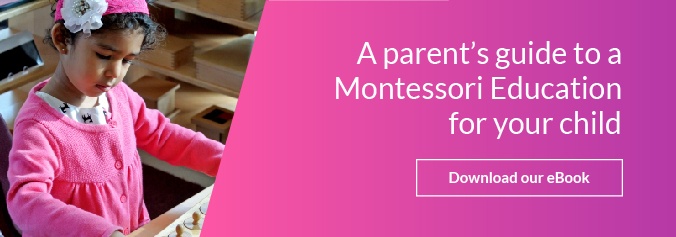Maria Montessori believed that all children have the ability to grow into great leaders. She developed her philosophy of education with that belief in mind. The Montessori Method is designed to provide students with ample opportunities to grow and practice their leadership skills. Montessori builds great leaders by giving students the opportunity for self-directed learning and by helping them grow both their academic and emotional intelligence.
Provides opportunities for self-directed learning
One of the core tenets of Montessori education is that children are naturally smart and should have a big part in directing their own learning. Self-directed learning helps build great leaders in a number of ways. When students have a say in how they learn it helps them develop a sense of responsibility for their own learning. Gaining a sense of responsibility for their own learning helps students develop into life-long learners. The best leaders understand that continuous learning is the only way to become and remain an effective leader.
Self-directed learning also builds leadership skills by spurring students to make decisions, take action, and ask for/receive help. Each day students in the Montessori classroom are expected to make decisions about how they will learn and then take action on those decisions. And, if problems arise or questions come up the student in the Montessori classroom must learn to seek out and receive help with those problems or questions. The responsibility of finding and implementing solutions in the classroom lands squarely on the shoulders of the individual child. The ability to make decisions, take action, and seek out help when necessary are all essential to effective leadership.
Helps students grow academic and emotional intelligence
One aspect of being a great leader is having the intellectual knowledge needed to be in a particular leadership position. A Montessori education provides students with opportunities to develop their academic intelligence through fun and advanced learning. In order to become great leaders students must develop more than just academic intelligence-they also need to develop their emotional intelligence. Emotional intelligence includes elements such as self-awareness, self-regulation, and empathy. A person with high emotional intelligence can recognize and manage their own emotions and recognize emotions in others.
Montessori helps students develop their emotional intelligence from the very beginning. The youngest Montessori students engage in activities designed to teach them how to care for themselves, their environment, and others. The mixed age classrooms in Montessori education provides opportunities for younger students to observe correct behavior from older students. In addition, the older students get the opportunity to teach and work with the younger students. Small student to staff ratios on Montessori campuses means that students practice interacting appropriately with adults on a daily basis. Each of these elements helps students develop and grow their emotional intelligence in the Montessori environment.
The Montessori philosophy of education assigns a high value to leadership development. The design of the classroom and curriculum provides students with opportunities to naturally develop their leadership skills. This value on leadership is a reflection of the overarching goal in Montessori education of preparing students for success in life.












Let us know what you think about this post
Put your Comment Below: